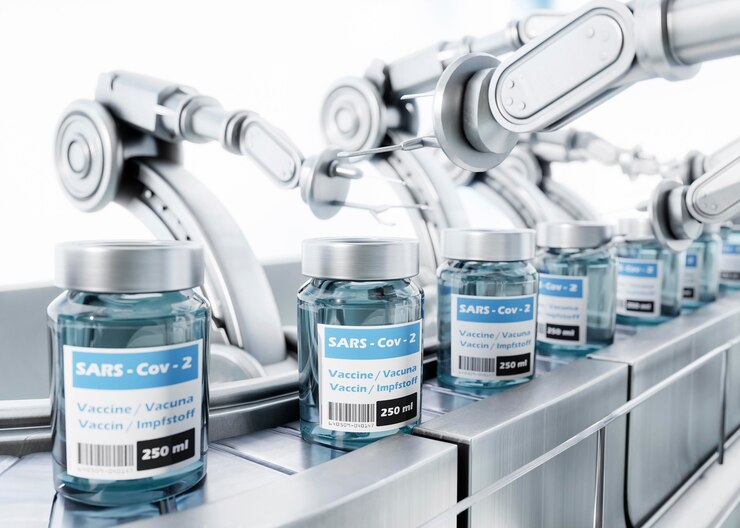What is Industrial Injection? Industrial injection refers to the process of injecting materials, chemicals, or fluids into a system, machinery, or structure for various purposes. This could involve injecting fuel into engines, chemicals into concrete for strengthening, or even lubricants into machinery. Industrial injection is a critical process in many industries, ensuring that machines operate …
What is Industrial Injection?
Industrial injection refers to the process of injecting materials, chemicals, or fluids into a system, machinery, or structure for various purposes. This could involve injecting fuel into engines, chemicals into concrete for strengthening, or even lubricants into machinery. Industrial injection is a critical process in many industries, ensuring that machines operate efficiently, structures are reinforced, and products are manufactured properly.
Types of Industrial Injection Systems
There are several types of industrial injection systems, each designed for specific applications. The most common types include:
- Fuel Injection Systems:
- Used in engines to deliver fuel directly into the combustion chamber.
- Ensures efficient combustion and better fuel economy.
- Commonly found in diesel engines, gasoline engines, and industrial machines.
- Chemical Injection Systems:
- Inject chemicals into pipelines, machinery, or other structures.
- Used for corrosion control, cleaning, water treatment, and more.
- Often used in oil and gas, water treatment, and chemical processing industries.
- Lubrication Injection Systems:
- Deliver lubricants like oil or grease to machinery parts.
- Essential for reducing friction, preventing wear, and extending machinery life.
- Common in heavy machinery, automotive, and industrial manufacturing.
- Concrete Injection:
- Involves injecting grout, resins, or other materials into concrete.
- Strengthens structures, fills cracks, and prevents leaks.
- Widely used in construction, infrastructure, and building maintenance.
- Hydraulic Injection Systems:
- Used in hydraulic systems to inject fluids like hydraulic oil.
- Controls the movement of heavy machinery and industrial equipment.
- Key in industries like construction, mining, and manufacturing.
How Does Industrial Injection Work?
Industrial injection systems use specialized equipment to inject precise amounts of materials into a designated area or system. Here’s a basic breakdown of how it works:
- Preparation: The material or fluid (like fuel, chemical, or lubricant) is prepared in a storage tank or container.
- Pump or Injector: A pump or injector is used to move the material from the storage tank to the injection point.
- Control System: Many industrial injection systems have a control system to regulate the flow, pressure, and timing of the injection process.
- Injection: The material is injected into the system, machinery, or structure. Depending on the application, the material may be dispersed evenly or targeted to specific areas.
- Monitoring: In many cases, sensors or monitors are used to ensure the injection is occurring correctly and that the desired outcome is achieved.
Industries That Use Industrial Injection
Industrial injection plays a crucial role in various industries, including:
- Automotive Industry:
- Fuel injection systems are essential for modern engines.
- Improve fuel efficiency, reduce emissions, and enhance engine performance.
- Used in manufacturing and assembling vehicles.
- Oil and Gas Industry:
- Chemical injection is widely used to prevent pipeline corrosion, control scale buildup, and improve flow.
- Water injection is often used for enhanced oil recovery.
- Essential for maintaining the safety and efficiency of pipelines and drilling operations.
- Construction Industry:
- Concrete injection is used to repair and strengthen structures.
- Helps fill cracks, seal leaks, and reinforce buildings, bridges, and tunnels.
- Important for ensuring the safety and longevity of structures.
- Manufacturing Industry:
- Lubrication and hydraulic injection systems are vital for machinery maintenance.
- Ensure that production lines operate smoothly without breakdowns.
- Used in the assembly of industrial equipment and components.
- Water Treatment Industry:
- Chemical injection systems are used to treat and purify water.
- Control bacteria, algae, and other contaminants.
- Ensure that water is safe for drinking, industrial use, or disposal.
- Agriculture:
- Fertilizer and pesticide injection systems are used to deliver nutrients and chemicals to crops.
- Improve crop yield and protect against pests.
- Enable precision farming, reducing waste and environmental impact.
Benefits of Industrial Injection
Industrial injection systems offer a range of benefits, including:
- Precision: Allows for accurate delivery of materials, reducing waste and ensuring optimal performance.
- Efficiency: Improves the efficiency of engines, machinery, and production processes.
- Cost Savings: Reduces operational costs by minimizing material waste, downtime, and maintenance needs.
- Improved Safety: Enhances the safety of industrial processes by delivering chemicals and materials in a controlled manner.
- Versatility: Industrial injection systems can be customized for various applications, making them suitable for multiple industries.
- Environmental Impact: Helps reduce emissions and environmental damage by ensuring efficient fuel combustion and precise chemical dosing.
Common Applications of Industrial Injection
- Engine Fuel Injection:
- Delivers fuel in precise amounts for combustion.
- Improves fuel economy and reduces harmful emissions.
- Common in diesel and gasoline engines, generators, and heavy machinery.
- Water Treatment:
- Injects chemicals like chlorine, biocides, and coagulants into water.
- Purifies drinking water and treats wastewater.
- Essential for municipal water treatment facilities and industrial plants.
- Pipeline Maintenance:
- Uses chemical injection to prevent corrosion and scaling inside pipelines.
- Keeps oil and gas pipelines operating safely and efficiently.
- Increases the lifespan of critical infrastructure.
- Concrete Repair:
- Injects grout or resin into cracks and voids in concrete.
- Restores structural integrity and prevents water leaks.
- Widely used in bridge and building repairs.
- Lubrication Systems:
- Injects lubricants into machinery to reduce wear and tear.
- Essential for keeping industrial machinery running smoothly.
- Increases the lifespan of equipment by preventing breakdowns.
How to Choose the Right Industrial Injection System
Choosing the right industrial injection system depends on several factors:
- Application: Consider the specific purpose of the injection (fuel delivery, chemical dosing, lubrication, etc.).
- Type of Material: Determine what material or fluid needs to be injected (e.g., fuel, chemicals, lubricants, grout).
- Environment: Consider the conditions where the injection system will be used, such as temperature, humidity, and pressure.
- Flow Rate and Pressure: Choose a system that can handle the required flow rate and pressure for the material.
- Compatibility: Ensure that the injection system is compatible with the machinery or structure it will be used with.
- Maintenance Needs: Consider the maintenance requirements and availability of replacement parts.
Maintenance Tips for Industrial Injection Systems
Proper maintenance is crucial to ensure the longevity and efficiency of industrial injection systems. Here are some maintenance tips:
- Regular Inspections: Check for leaks, blockages, and wear in the injection system. Inspect hoses, valves, and nozzles regularly.
- Clean Components: Clean filters, pumps, and injectors to prevent clogs and ensure smooth operation.
- Monitor Pressure: Keep an eye on pressure levels to ensure that the system operates within the recommended range.
- Lubricate Parts: Apply lubrication to moving parts to reduce friction and prevent damage.
- Replace Worn Parts: Replace any damaged or worn components immediately to avoid breakdowns.
- Follow Manufacturer Guidelines: Adhere to the manufacturer’s maintenance schedule and guidelines for best results.
Challenges and Considerations in Industrial Injection
While industrial injection systems offer many benefits, there are some challenges and considerations to keep in mind:
- High Initial Cost: Some injection systems can be expensive to install, requiring a significant upfront investment.
- Complexity: Certain systems can be complex, requiring skilled operators and technicians for proper use.
- Maintenance: Regular maintenance is necessary to prevent breakdowns and ensure safety.
- Compatibility Issues: Not all systems are compatible with every type of machinery or material, so careful selection is necessary.
- Environmental Impact: Improper disposal of chemicals used in injection processes can have environmental consequences.
Advancements in Industrial Injection Technology
Industrial injection technology has seen significant advancements in recent years, making systems more efficient and effective. Some of the latest trends and innovations include:
- Smart Injection Systems: Modern systems come equipped with smart sensors and control units that monitor and adjust the injection process in real-time.
- Eco-Friendly Materials: Development of biodegradable and environmentally friendly chemicals for injection processes.
- Energy Efficiency: New pumps and injectors are designed to consume less energy while delivering more precise results.
- Automated Maintenance: Systems with self-cleaning and automatic maintenance features are becoming more common, reducing downtime.
- Precision Agriculture: Injection technology is increasingly used in agriculture for precise fertilizer and pesticide application, reducing waste and improving yields.
Safety Tips for Using Industrial Injection Systems
Safety is paramount when using industrial injection systems. Here are some safety tips to follow:
- Wear Protective Gear: Always wear safety goggles, gloves, and protective clothing when handling chemicals or machinery.
- Proper Training: Ensure that operators are properly trained in using the injection system.
- Follow Safety Guidelines: Adhere to safety guidelines provided by the manufacturer and industry standards.
- Monitor Pressure: Avoid over-pressurizing the system, which could lead











